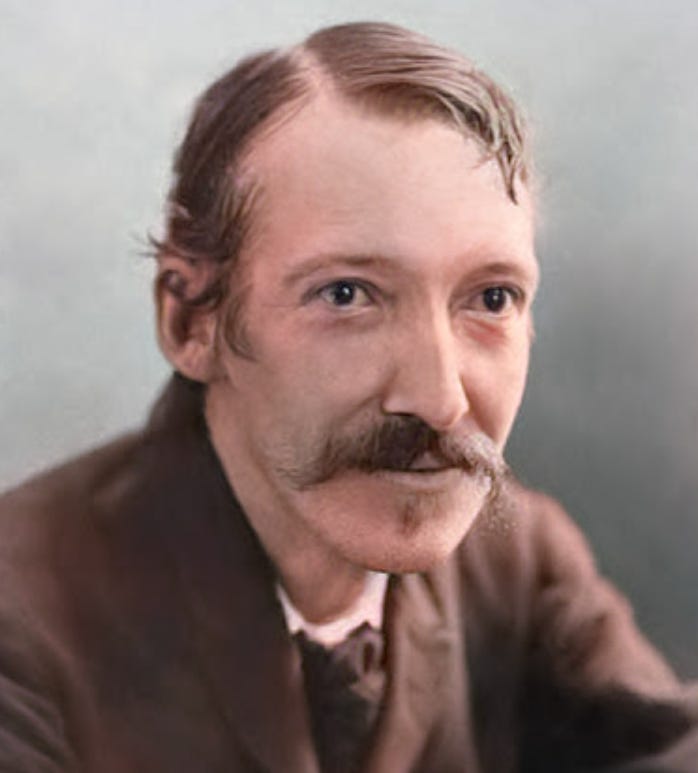"I travel not to go anywhere, but to go. I travel for travel's sake. The great affair is to move."
Robert Louis Stevenson
"I travel not to go anywhere, but to go. I travel for travel's sake. The great affair is to move."
Robert Louis Stevenson
Robert Louis Stevenson, born on November 13, 1850, in Edinburgh, Scotland, was a prolific Scottish novelist, poet, and travel writer, best known for his adventure classics Treasure Island, Strange Case of Dr Jekyll and Mr Hyde, and Kidnapped. Stevenson’s works have captivated readers for generations, blending thrilling narratives with deep explorations of human nature, morality, and the dualities within us all.
This quote reflects Stevenson’s lifelong passion for travel and exploration, which is a recurrent theme in both his life and his works. Stevenson was known for his restless spirit and his love of adventure, which led him to travel extensively throughout his life, despite his chronic health issues. His travels took him across Europe, America, and the South Pacific, and these journeys deeply influenced his writing, providing rich backdrops for his stories and inspiring his vivid descriptions of landscapes and cultures.
The quote also speaks to a broader philosophy of life that Stevenson embraced—a celebration of the journey itself rather than the destination. For Stevenson, movement and change were essential parts of life, offering new experiences, perspectives, and opportunities for growth. This attitude is reflected in his adventurous characters, like the treasure-seeking Jim Hawkins in Treasure Island and the morally conflicted Dr. Jekyll in Strange Case of Dr Jekyll and Mr Hyde, who are constantly grappling with the unknown and the unpredictable nature of their journeys.
Treasure Island (1883) remains one of the most famous adventure novels ever written, introducing readers to iconic characters like the cunning pirate Long John Silver and the courageous young Jim Hawkins. The novel’s themes of greed, loyalty, and the pursuit of treasure have become staples of the adventure genre, influencing countless works in literature and film.
Strange Case of Dr Jekyll and Mr Hyde (1886) is another of Stevenson’s masterpieces, exploring the duality of human nature through the story of Dr. Henry Jekyll, a man who creates a potion that transforms him into the malevolent Mr. Hyde. This novella delves into the conflict between good and evil within the human soul, a theme that has made it a lasting influence in both literature and psychology.
Stevenson’s literary contributions extend beyond these famous works. His novel Kidnapped (1886) is a historical adventure set in Scotland, reflecting his deep connection to his homeland, and his poetry collections, such as A Child’s Garden of Verses (1885), have enchanted readers with their lyrical beauty and insight into the world of children.
Despite his relatively short life—Stevenson died at the age of 44—his impact on literature is profound. His ability to combine thrilling adventure with deep psychological and moral exploration has ensured that his works remain beloved by readers of all ages. Stevenson’s writings continue to inspire with their timeless themes, engaging narratives, and the enduring belief in the importance of the journey, both in life and in literature.




